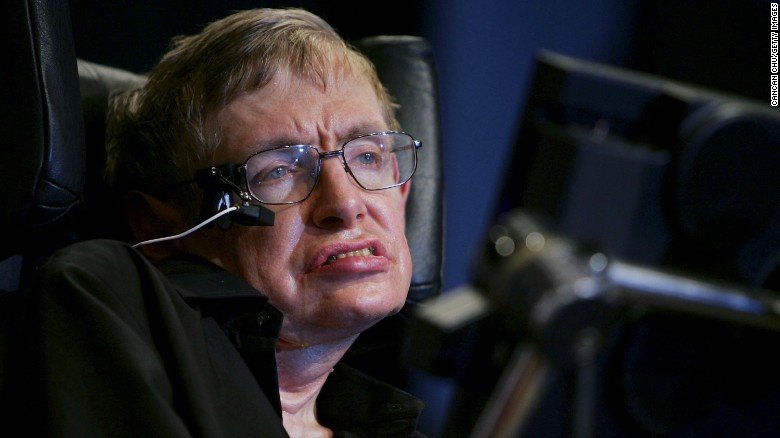Physicist Stephen Hawking has died at the age of 76.
Hawking’s children Lucy, Robert and Tim issued a statement on Wednesday, March 14th, in which they said “We are deeply saddened that our beloved father passed away today.”
“He was a great scientist and an extraordinary man whose work and legacy will live on for many years. His courage and persistence with his brilliance and humour inspired people across the world.” “He once said: ‘It would not be much of a universe if it wasn’t home to the people you love.’ We will miss him for ever.”
Hawking was diagnosed with motor neurone disease aged 22, and advised he could expect to live just a few more years. However, the disease progressed more slowly than predicted and Hawking married, kept working and became a titan of both hard and popular science.
His hard science saw him develop theories on black holes and gravity that went a long way towards reconciling classical and quantum mechanics.
His prominent place in popular science came about after his book A Brief History of Time became an unexpected best-seller after its lucid and accessible explanation of time, space and science’s search for a “theory of everything” resonated with the public.
So did Hawking’s life story: the stricken-but-still-brilliant scientist in a tricked-out wheelchair was someone the world wanted to know. His synthesised voice became his trademark and his wheelchair something of a symbol of the possibilities afforded by technology.
That he was able to write multiple books, and continue to work in the extraordinarily challenging fields he pursued, while battling his disease made him a much-admired man and a source of inspiration to many. As his children wrote, the fact that his disease didn’t blunt his sense of humour or dull his intellect only enhanced his reputation and appeal.
He quickly attained undisputed world’s-most-famous-scientist status, leading to appearances on The Simpsons and The Big Bang Theory, numerous other mentions in popular culture and a biopic.
He continued to be active in recent years, opining on the rise of artificial intelligence and backing an effort to power tiny spaceships with ground-based lasers. Other scientists, meanwhile, often validated his theories.
A Brief History of Time ended with Hawking writing that “If we discover a complete theory, it would be the ultimate triumph of reason – for then we should know the mind of God.”
Hawking’s work went a long way towards developing such a theory. And with his passing he now now has his own chance to truly know the mind of God. Or whatever else the universe offers beyond life.








